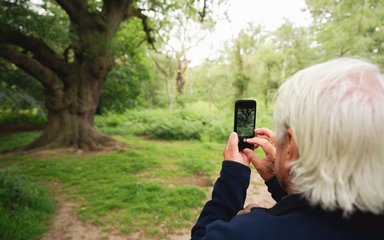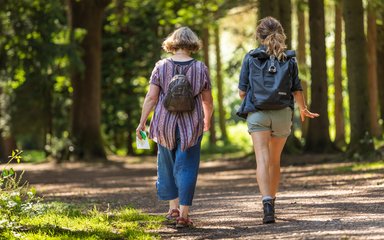
Forests are an ideal setting to take some time for your wellbeing. We’ve got lots of ways you can boost your own mental health and support others to find an activity they can benefit from, from wellbeing trails to group support sessions.

Feel Good in the Forest
Our growing Feel Good in the Forest programme supports people with mild-to-moderate health conditions to improve their wellbeing at selected forests across the country.

Virtual forests hub
Experience the joy of being in the forest, no matter where you are. From videos of wildlife to podcasts and creative activities, explore our virtual forests hub.

Why are forests good for health and wellbeing?
Trees lead to better human health and there’s strong evidence to back this statement up.

Your community stories
Find out how other people are experiencing the wellbeing benefits of forests.

Find your connection with the forest
Discover your own forest moment or join others to explore, try new things and have fun in the nation's forests.




